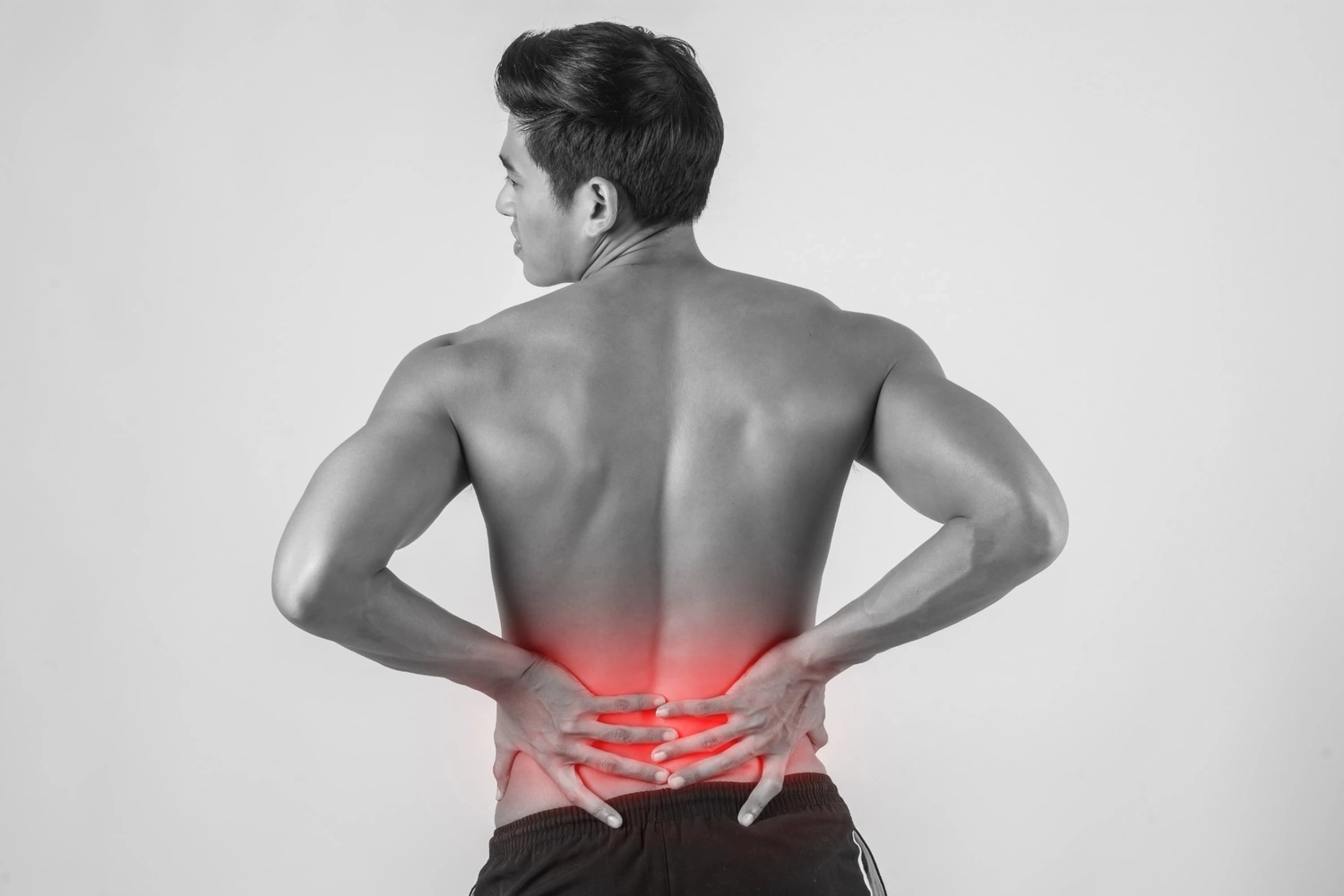Physiotherapy in Calgary
Back pain is a common concern that affects people worldwide. Whether it’s a temporary issue or a recurring condition, back pain often signals that something is amiss. By identifying the different types of back pain and what they could indicate, you can take steps to address the underlying factors and enhance your well-being. This blog will explore various types of back pain, potential causes, and when it might be time to seek professional help, including physiotherapy in Calgary.

Types of Back Pain and What They Might Indicate
Acute vs. Chronic Back Pain
Back pain is typically classified into two main types: acute and chronic. Understanding the nature of the pain can help pinpoint its potential causes.
Acute Back Pain: Acute back pain tends to be short-lived, often lasting from a few days to a few weeks. It’s frequently caused by specific events such as lifting heavy items, sudden movements, or poor posture. Muscle strains, ligament sprains, or disc issues are common triggers. This type of pain often improves with rest, ice or heat therapy, and over-the-counter pain relievers. However, if it persists, further investigation may be needed. Physiotherapy in Calgary can support recovery and speed up healing for acute back pain.
Chronic Back Pain: If back pain continues for over three months, it’s considered chronic. Chronic pain might point to a deeper issue, such as arthritis, degenerative disc disease, or spinal misalignment. This type of pain generally requires ongoing management. Options like physical therapy, lifestyle adjustments, and sometimes surgery may be necessary. Physiotherapy in Calgary offers methods to help manage chronic back pain and improve mobility.
Localized vs. Radiating Pain
Back pain can manifest in different ways, and understanding the difference between localized pain and radiating pain can help with identifying the cause.
Localized Pain: This type of pain is confined to a particular area of the back, such as the lower or upper back. It’s typically related to musculoskeletal problems, like muscle or ligament injuries, poor posture, or herniated discs. Localized pain can also result from overuse or injury. If the pain is isolated and doesn’t spread, it’s usually not a major concern and can be treated with rest, ice, and stretching. Physiotherapy in Calgary can offer targeted solutions to treat localized pain more effectively.
Radiating Pain: Radiating pain extends from the back to other areas of the body, such as the legs, arms, or feet. This type of pain often arises from nerve compression or irritation. One example is sciatica, where the sciatic nerve is pinched, leading to pain that radiates down the leg. This kind of pain typically requires a thorough assessment to identify the underlying cause. Physiotherapy in Calgary can offer treatments to relieve nerve compression and reduce radiating pain.

Common Causes and Their Implications
Various conditions can lead to back pain, each with unique causes and potential solutions.
Muscle Strain and Ligament Sprain
One of the leading causes of acute back pain is muscle strain or ligament sprain, often resulting from improper lifting, overexertion, or sudden movements. These injuries can lead to sharp or dull pain, stiffness, and tenderness. Rest, ice, and over-the-counter pain medications can help reduce symptoms. Physiotherapy in Calgary can promote quicker healing and restore strength to the affected muscles and ligaments.
Herniated Discs
A herniated disc occurs when the inner part of a spinal disc pushes through the tough outer layer, potentially irritating nearby nerves. This can cause both localized and radiating pain. Sitting or standing for extended periods may worsen the pain. Treatment options for herniated discs typically include physical therapy, pain management, and in some cases, surgery if conservative treatments don’t work. Physiotherapy in Calgary can help ease pressure on the spine and alleviate discomfort associated with a herniated disc.
Osteoarthritis
Osteoarthritis is a degenerative condition where the cartilage between the vertebrae deteriorates, leading to inflammation, stiffness, and chronic pain. This condition is often linked to aging, but genetics or past injuries can also contribute. Those with osteoarthritis may experience increased pain and stiffness, especially with movement. Treatment usually involves physical therapy, regular exercise, lifestyle modifications, and pain relief. Physiotherapy in Calgary can help improve joint function, flexibility, and reduce stiffness for those managing osteoarthritis.
Postural Issues
Prolonged sitting or standing with poor posture can lead to back pain due to muscle strain, fatigue, and discomfort. This is a preventable cause of pain. Correcting posture, making ergonomic adjustments, and engaging in strengthening exercises can help reduce strain. Physiotherapy in Calgary can assist with improving posture and providing exercises that minimize future pain.

When to Seek Professional Help
While some types of back pain can be managed at home, certain signs suggest it might be time to consult a healthcare provider.
Persistent Pain: If back pain lasts beyond a few weeks despite self-care efforts, it’s important to get medical advice. Chronic pain may point to an underlying issue that needs professional treatment. Physiotherapy in Calgary can assist with long-term pain management and address the core causes.
Severe Pain: If back pain is intense and doesn’t improve with rest or medication, it could signal a more serious condition, like a herniated disc, spinal fracture, or infection.
Numbness, Weakness, or Loss of Sensation: If back pain is accompanied by numbness, tingling, or weakness in the limbs, it could suggest nerve involvement. Conditions like sciatica or spinal compression may be the cause. Physiotherapy in Calgary can offer effective treatments for nerve-related pain.
Bowel or Bladder Problems: If you experience incontinence, difficulty urinating, or loss of bowel control along with back pain, seek immediate medical attention. These could be signs of a condition that requires urgent care.

Final Thoughts
Back pain is often your body’s way of signaling that something needs attention. By paying close attention to the type, location, and intensity of your pain, you can begin to understand its possible causes. For some, simple changes like better posture or stretching can help alleviate discomfort. For others, more comprehensive treatments, including physical therapy, may be necessary.
If back pain continues or worsens, don’t hesitate to seek medical advice. Early intervention can help identify and treat the cause of the pain, improving mobility and overall well-being. Physiotherapy in Calgary is a valuable resource for managing back pain and enhancing your quality of life.

